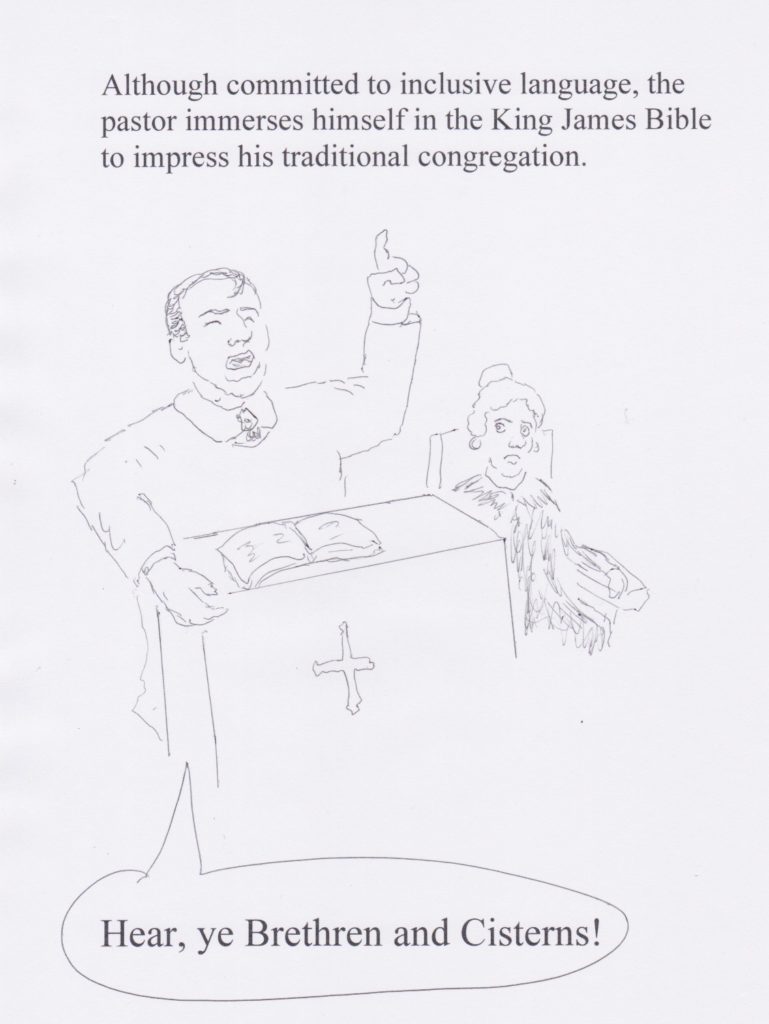
Bee-bee gun



https://www.biola.edu/blogs/think-biblically/2018/present-day-miracles Grateful that Scott made it an audio interview. If it were a video interview, I’d have had to have tied my tie! 🙂
Some of us are sometimes tempted to think that God uses only ministers in the more technical sense. But God appointed ministries of the Word to equip all the saints for their respective ministries, to be lights in the respective places where they serve and live and study (Eph 4:11-13). “The gifts he gave were that some would be apostles, some prophets, some evangelists, some pastors and teachers, to equip the saints for the work of ministry, for building up the body of Christ” (Eph 4:11-12, NRSV)
Some of those other skills, such as health work and agriculture, address some of the very issues that Jesus cared about (as demonstrated by his healings and feeding multitudes). (That Jesus would have approved of doing what we can to provide outside of miracles is suggested by him telling his disciples, after the feeding miracle, to gather up the leftovers. That is, they wouldn’t need a miracle for their next meal.) Thank God for a prophetically insightful public administrator like Joseph, who was able to save many lives from famine (Gen 45:5, 7; 50:20). Priests became dermatologists when they had to examine people for what were believed to be contagious skin diseases (Lev 13:2-43). Somebody presumably took care of safety inspections (Deut 22:8).
Granted, in the Old Testament, we especially see the Spirit empowering God’s servants to prophesy or lead (e.g., Deut 34:9), and of worship worship leading (1 Chron 25:1-5) and other songs (1 Kgs 4:32; Song of Solomon). But we also see the Spirit filling Bezalel for artistic and architectural activity that honors God (Exod 31:3; 35:31; 36:1). The seven new officers of the church in Acts 6:3 initially must be full of the Spirit and wisdom for their work in administration and finance. God also gave Solomon special wisdom for judging (1 Kgs 3:9-28). Let’s not forget the Spirit filling Samson with superhuman strength (though the purpose was delivering Israel and not just winning prizes in competitions). God’s Spirit came on Mary to be a Mom (though in a special way for the virgin birth, which was for only one occasion in history).
Are you interested in biology, genetics and the like? Many discoveries in these areas can lead to improvements in health care. But of course the sciences hold their own interest. Proverbs 25:2 might speak of those who had leisure (i.e., not farming or other responsibilities) to seek knowledge: “It is the glory of God to conceal things, but the glory of kings is to search things out” (NRSV). (Even though we will never run out of hidden things, Deut 29:29.) Solomon had a passionate interest in biology and its applications; this was part of his God-given wisdom: “He spoke about plant life, from the cedar of Lebanon to the hyssop that grows out of walls. He also spoke about animals and birds, reptiles and fish” (1 Kgs 4:33, NIV)
There are plenty of military officers, though this was closer to their calling and empowerment in Old Testament periods where God’s purposes were closely tied to a nation (in Acts, we see many following the Lord but not so much specifically because of them being in the military, since the Roman military was not used only for just wars and certainly not for holy ones).
Even for other kinds of subsequent ministry, God used people’s various backgrounds as models for what they would do, such as shepherds (of sheep and then people), fishers (of fish and then people), accountants (tax collectors), scribes (Matt 13:52), carpenters, and the like. (Pastoral counseling counts as a pastoral/shepherd gift; cf. e.g., Ezek 34:2, 4.) (If plumbers and aeronautic engineers don’t appear on this list, it is because they didn’t exist in the biblical cultures yet. Only rich people had indoor plumbing, and hiking up the Acrocorinth, which I got to do once, was the closest anybody got to physical space travel.) Paul, of course, was sometimes bivocational as a leather worker (or tentmaker, depending on how you translate that); given what we know about this profession, that probably included sales also.
These are just a sample of the sorts of callings that God used, partly limited by the range of examples available in antiquity and partly because I thought these examples should suffice. (I could have listed many more). Further, many other callings are implied; our advanced economies and information technology allows us to specialize in ways not possible in antiquity. Community concerns for law enforcement, sanitation, and the like were handled differently but were matters of concern then as now. Given ancient values on hospitality and the making and selling of textiles even from homes, the polite behavior we expect in service industries was probably shared more widely in the culture.
So if your particular area isn’t in the list, don’t feel like it shouldn’t be. Obviously there are some spheres in which Christians cannot work, such as drug dealer or pimp (gangster boss Mickey Cohen, converted in a mid-twentieth century evangelism meeting, didn’t persevere in faith when he realized it would cost him his profession). But for the most part, God uses us in a range of professions, always in our witness for Christ and often even through the ways we serve through the profession itself.
Those of us who are called to use Scripture to equip the saints for their ministries (Eph 4:11-13) should remember this and encourage people in our congregations to flourish in their range of professions.


Zondervan also interviewed Craig on the mark of the beast:
Have you ever been in a situation where you felt like you didn’t have enough faith to pray? Or where something turned out differently than you’d hoped, and you assumed that it was because you lacked faith? Or where God answered your prayers, but you weren’t sure it was God or you initially couldn’t believe that it really happened?
In Acts 12, James, brother of John, is arrested and executed by King Herod Agrippa I. Jesus explained that the twelve apostles would sit on thrones judging the twelve tribes (Luke 22:30); he did not say that it would happen before their death and resurrection (Mark 10:38-39). For those who expected the kingdom immediately, however, the death of one of the apostles was a faith-testing event. James was not only one of the twelve, but one of the three closest to Jesus (Luke 8:51; 9:28).
Now Peter, leader of the twelve, is arrested and scheduled to face the same fate. The church prays fervently for his release (12:5). While believers pray, an angel of the Lord comes and leads Peter out of the prison, and he heads for a Christian household where, it turns out, believers are praying (12:12). Yet when he first arrives, the believers initially do not believe that their prayer is answered.
The narrative bristles with irony:
To borrow an analogy from Luke’s Gospel, Those inside have been “knocking” in prayer that a figurative door may be “opened” for them (Luke 11:5-10), for Peter’s release (Acts 12:5, 12)—yet fail to believe that the answer to their prayers is knocking on their door!
We can be happy that God is not limited to acting on our faith. That was certainly the case when Gabriel was sent to Zechariah to let him know that his wife Elisabeth was going to have a son (Luke 1:18-20). (Moses certainly didn’t have faith to make the burning bush burn.) To a lesser extent, it was also true when believers were praying for Peter’s release from Herod Agrippa’s plans to kill him in Acts 12:5-16.
But while their faith wasn’t perfect, they had enough faith to pray. They came to the right place with their needs. Although I called this a “faithless prayer meeting,” they weren’t really faithless; they just had limited faith that didn’t match God’s much greater power. It takes just a mustard seed, because the real issue is not how big is our faith, but how big is the God in whom we trust. That is, we don’t need to put faith in our faith, as if faith itself is a force of imagination that makes things happen. We can trust a God who is bigger than us being perfect or having everything figured out. Yes, God invites us to have faith. Yes, confidence in him matters. But we can thank God that he is not controlled by or limited to our faith. He is bigger than we can ask or imagine, and we grow deeper in faith as we witness and consider his gracious acts.

In Mark 1:2-3, Mark speaks of the messenger who prepares the way for YHWH. Mark links together two verses from the prophets addressing one who would prepare the way for YHWH’s coming. One is Malachi 3:1; the other isIsaiah 40:3. Mark may have learned the verses separately (cf. Matt 11:10//Luke7:27), but he follows good ancient Jewish interpretive procedure in linking verses that share a common theme, and especially common language. Both passages speak of one who will “prepare the way” of YHWH. (In their contexts, they share some other common wording; Isaiah’s “my messenger,” God’s own people, act as deaf and blind in Isa 42:19.)
Mark blends them so thoroughly that he names only the better-known prophet when he attributes them: Isaiah. This is helpful in focusing the reader’s attention on the larger context of this section of Isaiah, as noted in the preceding post on Mark 1:1.
But what about Malachi? Does Mark think at all of Malachi’s context? Malachi expects consuming fire when YHWH comes (Mal 3:2; 4:1), an expectation also held by John the Baptist in Matt 3:11//Luke 3:16. But Malachi returns to the preparer in Mal 4:5-6: this is the prophet Elijah, who will turn or restore people’s hearts, preparing them lest YHWH strike the land when he comes. (Jesus uses the Greek version’s term for “restore” for John’s mission as Elijah in Mark 9:12; it applies to Jesus’s healings in Mark 3:5 and 8:25.)
This verse prepares us to recognize John the Baptist as the promised preparer for YHWH. Sure enough, John is recognizable as Elijah in Mark’s introduction. He does not call down fire on his challengers or on a sacrifice on a mountain. What he does do is come at the Jordan (Mark 1:5), in the wilderness (Mark 1:4), and, most distinctively, wearing a leather belt around his waist (Mark 1:6). Elijah had ascended just past the Jordan (2 Kgs 2:6, 13), had spent time in the wilderness (1 Kgs 19:4), and, most importantly, is depicted specifically as wearing a leather belt around his waist (2 Kgs 1:8). However common or uncommon such belts may have been, the only passage in the Old Testament mentioning a leather belt is 2 Kgs 1:8, and the only passages in the New Testament mentioning it are those introducing John (Matt 3:4; Mark 1:6). Both use exactly the same two terms; this is the New Testament’s only use of the term translated “leather.”
Why is it so significant that John fills a role like Elijah? If John fulfills Malachi 3:1, then John prepares the way for YHWH. But Mark identifies John as preparing the way for the Spirit-baptizer (Mark 1:8), for Jesus. In the Old Testament, only YHWH may pour out YHWH’s own Spirit. Mark thus recognizes that Jesus is YHWH himself, the one who baptizes in the Spirit (Mark 1:8). Ergo: Jesus is Lord.
